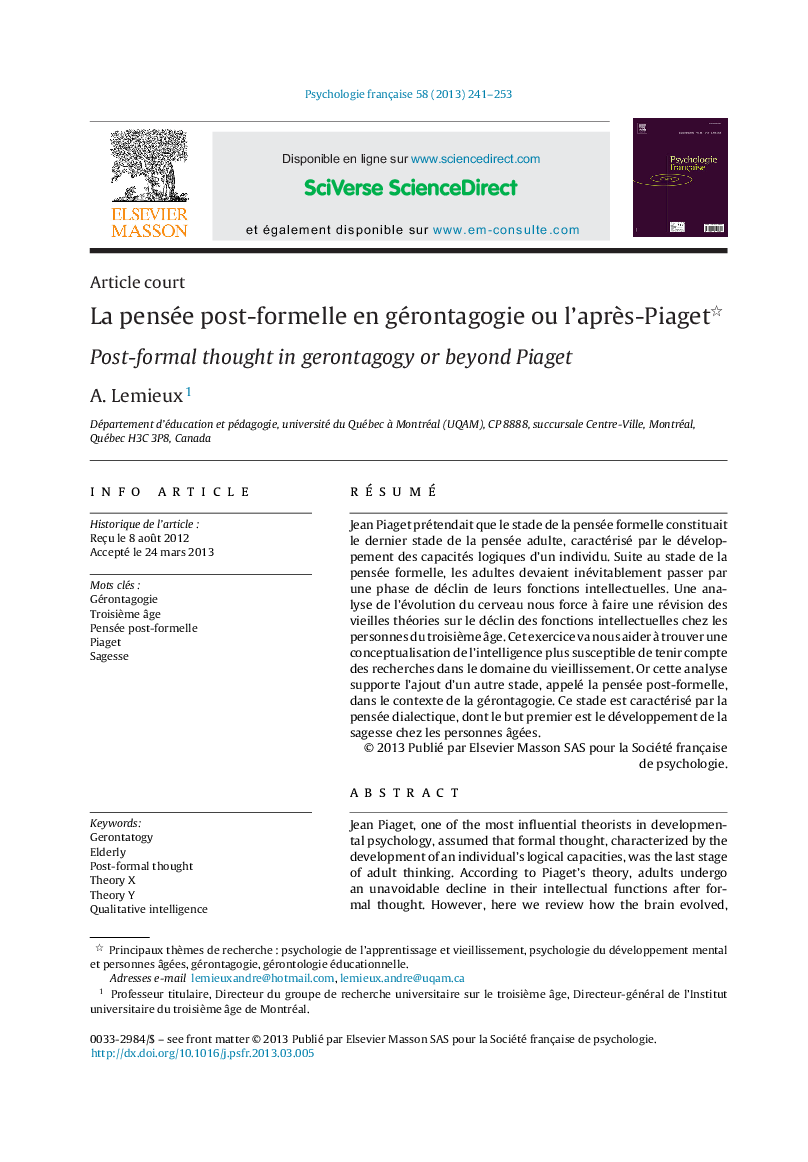| Article ID | Journal | Published Year | Pages | File Type |
|---|---|---|---|---|
| 335418 | Psychologie Franaise | 2013 | 13 Pages |
RésuméJean Piaget prétendait que le stade de la pensée formelle constituait le dernier stade de la pensée adulte, caractérisé par le développement des capacités logiques d’un individu. Suite au stade de la pensée formelle, les adultes devaient inévitablement passer par une phase de déclin de leurs fonctions intellectuelles. Une analyse de l’évolution du cerveau nous force à faire une révision des vieilles théories sur le déclin des fonctions intellectuelles chez les personnes du troisième âge. Cet exercice va nous aider à trouver une conceptualisation de l’intelligence plus susceptible de tenir compte des recherches dans le domaine du vieillissement. Or cette analyse supporte l’ajout d’un autre stade, appelé la pensée post-formelle, dans le contexte de la gérontagogie. Ce stade est caractérisé par la pensée dialectique, dont le but premier est le développement de la sagesse chez les personnes âgées.
Jean Piaget, one of the most influential theorists in developmental psychology, assumed that formal thought, characterized by the development of an individual's logical capacities, was the last stage of adult thinking. According to Piaget's theory, adults undergo an unavoidable decline in their intellectual functions after formal thought. However, here we review how the brain evolved, describing its main structures, and examining each cerebral hemisphere's specific functions. Evidence is also provided for the production of new neurons and new connections between them, forcing a revision of old theories about the decline of intellectual functions in the elderly. We then consider Jones’ theories X and Y, and the different definitions of intelligence (fluid vs. crystallized, and qualitative vs. quantitative), and how these perspectives have influenced the way we see intelligence. Evidence supporting the addition of another stage, named post-formal thought, is examined in the context of gerontagogy. Dialectical thought characterizes this stage, and developing wisdom is its main goal. We examine the two basic principles of dialectical thought, namely the principle of contradiction and the principle of relativity of everything. It is suggested that the learning of wisdom should be the focus of future university programs to educate the elderly.
